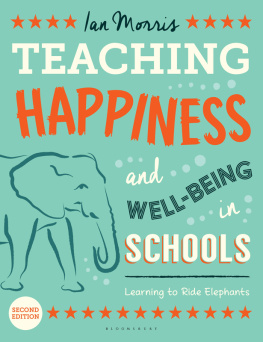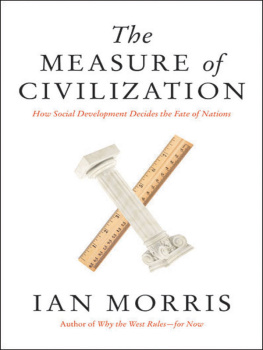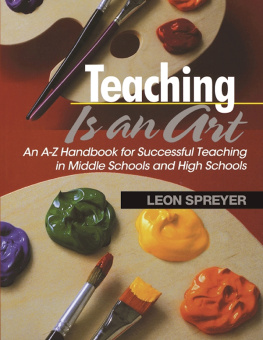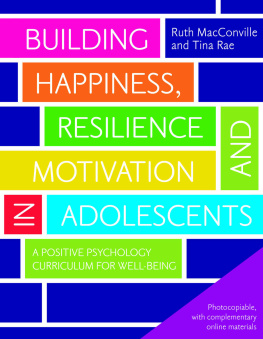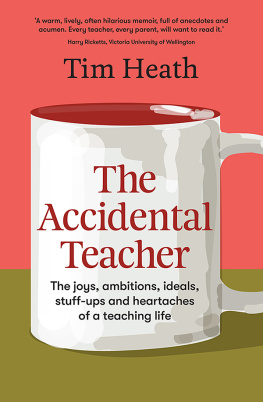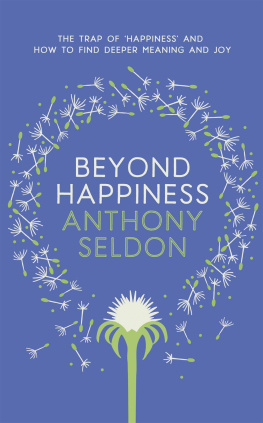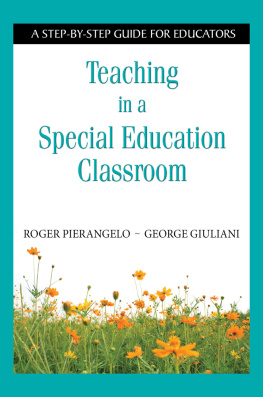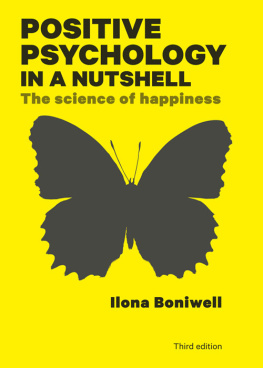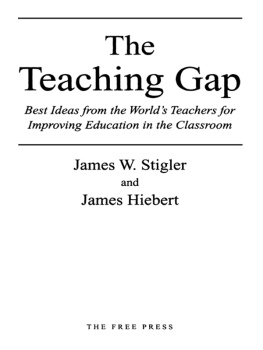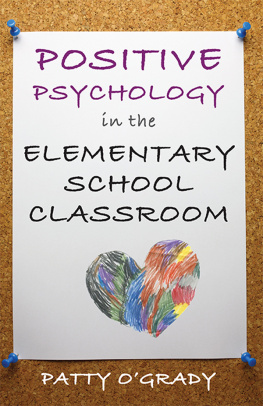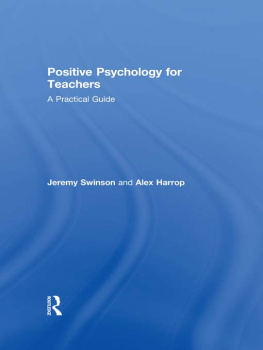Teaching Happiness and Well-being in Schools
Other titles available from Bloomsbury Education:
Creating Tomorrows Schools Today by Richard Gerver
How to Survive an Ofsted Inspection by Sarah Findlater
Lesson Planning Tweaks for Teachers by Melanie Aberson and Debbie Light
Teacher Toolkit by Ross Morrison McGill
The Literacy Leaders Toolkit by Graham Tyrer and Patrick Taylor
Teaching Happiness and Well-being in Schools
Learning to ride elephants
Second Edition
Ian Morris

To Georgie, Olivia and Felix: the most important people in my life. There but for the grace of you go I.
And for my parents, who showed me how to find the important things in the first place.
Contents
Professor Richard Layard described the first edition of this book as remarkable. This second edition is, in my view, even more deserving of such a commendation. Radically reworked from the original version, this book promotes the simple idea widely agreed upon by teachers and parents that schools are meant to prepare students for the tests of life rather than just a life of tests. While both simple and powerful, this idea has become increasingly lost in an age of Gradgrindian instrumentalism that considers all educational goals subordinate to narrow academic metrics and the prospects of well-paid jobs in the future. Ian Morris offers the radical alternative of arguing that the ultimate purpose of education is human well-being or flourishing, and that everything we do in schools should be geared towards this aim.
Although I do miss some of the irreverent and self-deprecating humour of the first edition the signs of a free spirit finding his feet in moral and educational space this has been replaced by a much more rigorous, consistent and academically-serious argument. Stimulated by work in the Jubilee Centre for Character and Virtues, Morris now considers Aristotelian eudaimonism with its objective view of well-being and its application of the language of virtue and character to constitute the most sound and sophisticated understanding of well-being available. explicate this philosophical basis of the book. Subsequently, Chapters 3 to 9 provide practical advice on the design and execution of a well-being curriculum, and the last chapter tackles the issue of the well-being of the teachers themselves.
As Morris explains in , well-being does not consist simply in the removal of impediments to human flourishing, but instead, in attempts to develop the positive dispositions, or virtues, that bring human flourishing about. While many teachers would concur with this statement, they typically complain about not being prepared to carry out well-being goals, and they express confusion about the semantic minefield of subjects aimed at developing the whole child. For example, what Morris calls well-being education, others would specify as positive education (in the latest jargon) and we in the Jubilee Centre simply as character education (on a broad enough specification of character). To be sure, the absence of a common language in which these efforts have been couched has not made life easier for teachers, and the endless flavour-of-the-month varieties that have continuously been on offer have instilled a dismissive cry-wolf attitude among them, which alongside simple initiative fatigue has contributed to the lack of sustained uptake.
Most of those excuses will melt away, however, after reading Morriss book. It offers a user-friendly moral and educational GPS to help with the semantic navigation, and it provides a sustained argument for eudaimonism as a unifying language for schooling. I particularly applaud the emphasis on the character and needs not only of students, but also teachers, because teachers who are stressed or demoralised make poor role models for young people (). All in all, I can hardly think of a better introduction to well-being education, and to the intrinsic values that make up good education, for teachers, parents and students, and I recommend it whole-heartedly.
Kristjn Kristjnsson
Jubilee Centre for Character and Virtues, University of Birmingham
January 2015
Id like to begin by asking you to imagine that you are about to go for a journey on the back of a magnicent, big-eared, African elephant. Having climbed onto his back, you are sitting astride him, your legs resting against his thick, wrinkly skin and your hands upon his shoulders. You dont know the elephant, but the guide assures you that he is good natured and that he likes humans. You set off: just you, alone on top of your elephant, following on behind a procession of other elephant riders. Pretty soon you get used to the elephants lumbering rhythm: the movement of his shoulders, the swaying of his head and trunk, the bellows-like swell and shrink of his anks as he breathes beneath you. You lift your head from your elephants neck and begin to notice the other riders some seem steadier than you, others seem less secure, some are ecstatically happy, others are nervous and seem to cling on to their animal for dear life. Youre happy with your rst attempt at elephant riding.
Then you begin to think about your destination and suddenly realize that you dont know where you are going. You try to look to the head of the procession, but amidst the clouds of dust kicked up by giant feet and the swaying, colourfully-clothed compatriots ahead, you realize that the guide you had assumed to be at the front, might not be there after all. You start to get concerned. You look around nervously, but nobody else seems to share your fears: the lady behind you smiles and waves. Your mind rushes on to thinking about how to stop the elephant to get off. The guides all speak Swahili to the elephants. You dont speak Swahili. You dont even have reins to make him change direction. It dawns on you that this elephant is out of your control. All the while, he plods along ten paces behind the elephant in front, keeping perfect step, following the route set out for him. It eventually strikes you that the elephant knows exactly where it is going: all you have to do is relax and let him carry you there.
The metaphor of riding elephants comes from Jonathan Haidts book The Happiness Hypothesis and it is a metaphor which helps to illustrate the place of happiness and well-being in education. Haidt explains that, metaphorically, the key to successful animal riding is a harmonious relationship between the animal and its rider. In order to guide an elephant to where you want to go, you have to be able not only to know your destination, but also to understand the elephant and all of the little aspects of elephant behaviour which will make your journey a success. You also have to be able to trust that, in certain circumstances, the elephant knows best and allow yourself to be guided by him.
For Haidt, the elephant and its rider is a metaphor for being human. The rider, the small component attempting to control everything, represents the conscious, thinking self. The elephant, the vast, powerful set of forces which the rider is attempting to control, represents everything else: all of the myriad unnoticed processes of the brain and all of the extraordinary panoply of events which take place in the body. As Haidt explains, it is a mistake to see the two as separate:
Our minds are loose confederations of parts, but we identify with and pay too much attention to one part: conscious verbal thinking Because we can see only one little corner of the minds vast operation, we are surprised when urges, wishes, and temptations emerge, seemingly from nowhere We sometimes fall into the
Next page
